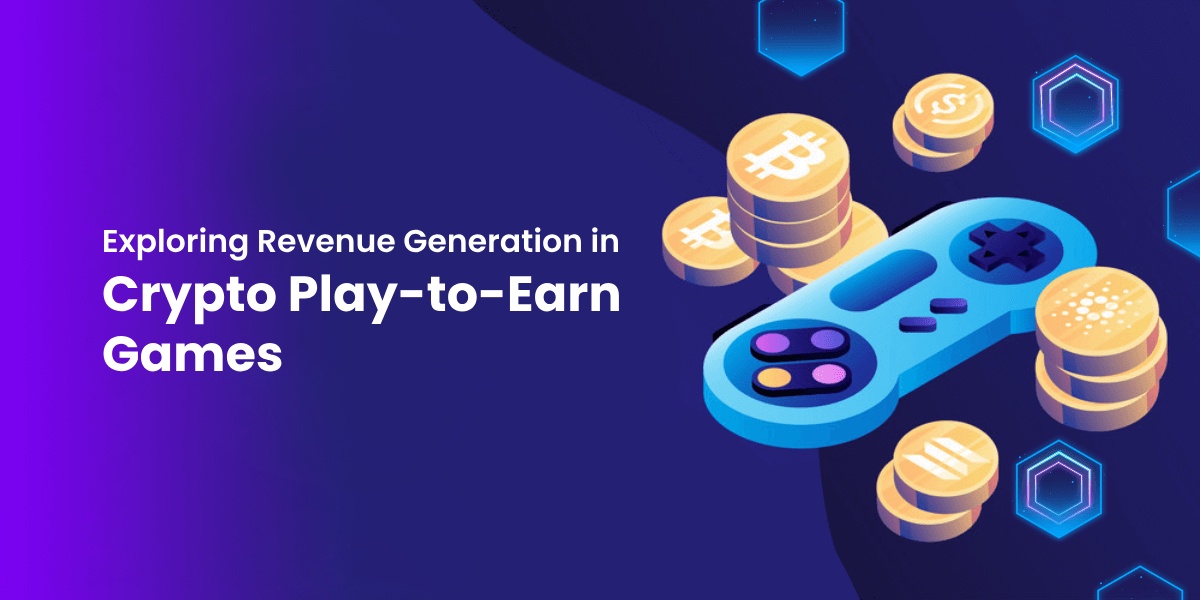Cryptocurrency play-to-earn games have gained immense popularity in recent years, offering players the opportunity to earn digital assets while enjoying gaming experiences. These games leverage blockchain technology to enable players to earn tokens or cryptocurrencies by participating in various in-game activities.
But how exactly do these games generate revenue?
In this blog post, we'll delve into the mechanisms behind revenue generation in crypto play-to-earn games.
1. Initial Token Sales and Pre-Sale Events:
Many crypto play-to-earn games generate revenue through initial token sales or pre-sale events. Before launching the game, developers may offer tokens to early investors, supporters, or players at discounted rates. These funds raised during token sales contribute to the game's development, marketing efforts, and operational expenses.
2. Sale of In-Game Items and NFTs:
In-game items and non-fungible tokens (NFTs) play a significant role in crypto play-to-earn games. Developers monetize these virtual assets by offering them for sale within the game's ecosystem. Players can purchase items such as weapons, skins, characters, or land parcels using the game's native tokens or cryptocurrencies. The revenue generated from these sales contributes to the game's overall revenue stream.
3. Transaction Fees and Commissions:
Crypto play-to-earn games often charge transaction fees or commissions on in-game transactions conducted on their platforms. These fees may apply to various activities, such as buying, selling, or trading virtual assets within the game. Developers earn revenue by collecting a percentage of each transaction conducted on the platform.
4. Advertisement and Sponsorship Opportunities:
Similar to traditional gaming platforms, crypto play-to-earn games may offer advertisement and sponsorship opportunities to generate revenue. Developers can partner with brands, advertisers, or sponsors to promote products, services, or events within the game. Advertisers pay for exposure to the game's player base, while developers earn revenue from advertising deals or sponsorship agreements.
5. Staking and Governance Mechanisms:
Some crypto play-to-earn games incorporate staking and governance mechanisms to incentivize player participation and community engagement. Players can stake their tokens or NFTs to earn rewards, such as additional tokens, exclusive in-game privileges, or voting rights in governance decisions. Developers may charge fees or allocate a portion of the staking rewards to generate revenue for the game.
6. Premium Features and Subscription Models:
Certain crypto play-to-earn game development companies offer premium features or subscription models for players willing to pay for enhanced gaming experiences. These features may include access to exclusive content, premium in-game items, or special events. Developers generate revenue by charging subscription fees or one-time payments for access to these premium features.
7. Secondary Market Transactions:
The secondary market for virtual assets and NFTs within crypto play-to-earn games also contributes to revenue generation. Players can buy, sell, or trade virtual assets on external marketplaces or decentralized exchanges, often paying transaction fees or commissions. Developers may earn a percentage of these secondary market transactions as platform fees.
In conclusion, crypto play-to-earn games employ various revenue-generating mechanisms to sustain their operations and reward players for their participation. From initial token sales and in-game item sales to transaction fees, advertisements, and staking mechanisms, these games offer a diverse range of revenue streams. As the popularity of crypto play-to-earn games continues to grow, developers will continue to explore innovative monetization strategies to drive sustainability and profitability in this emerging sector.


No comments yet